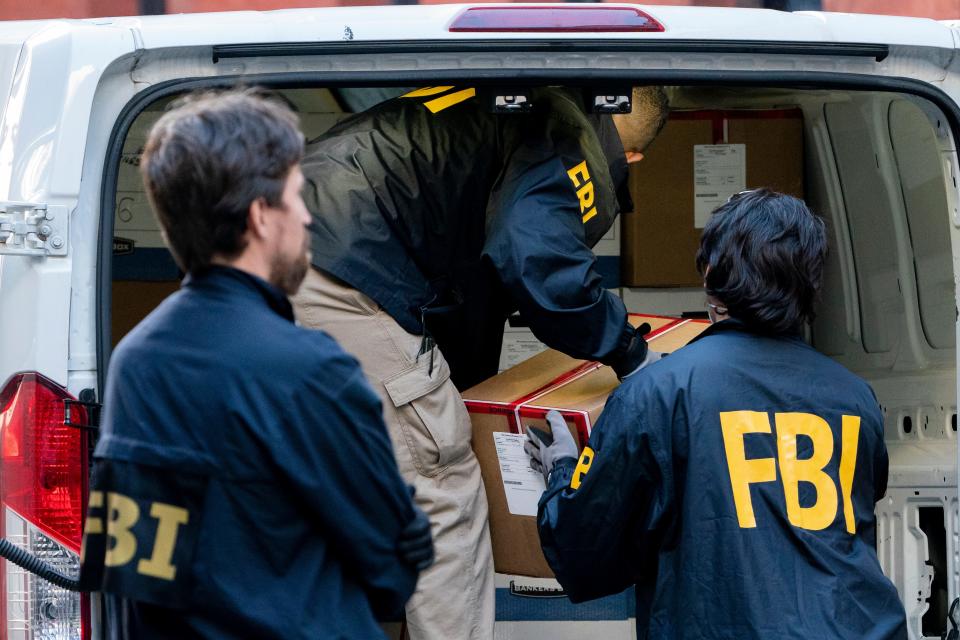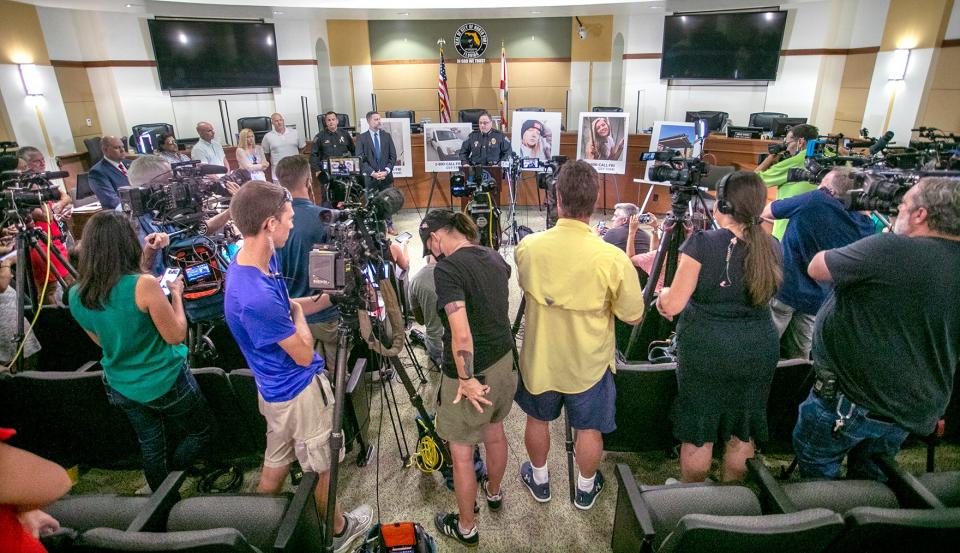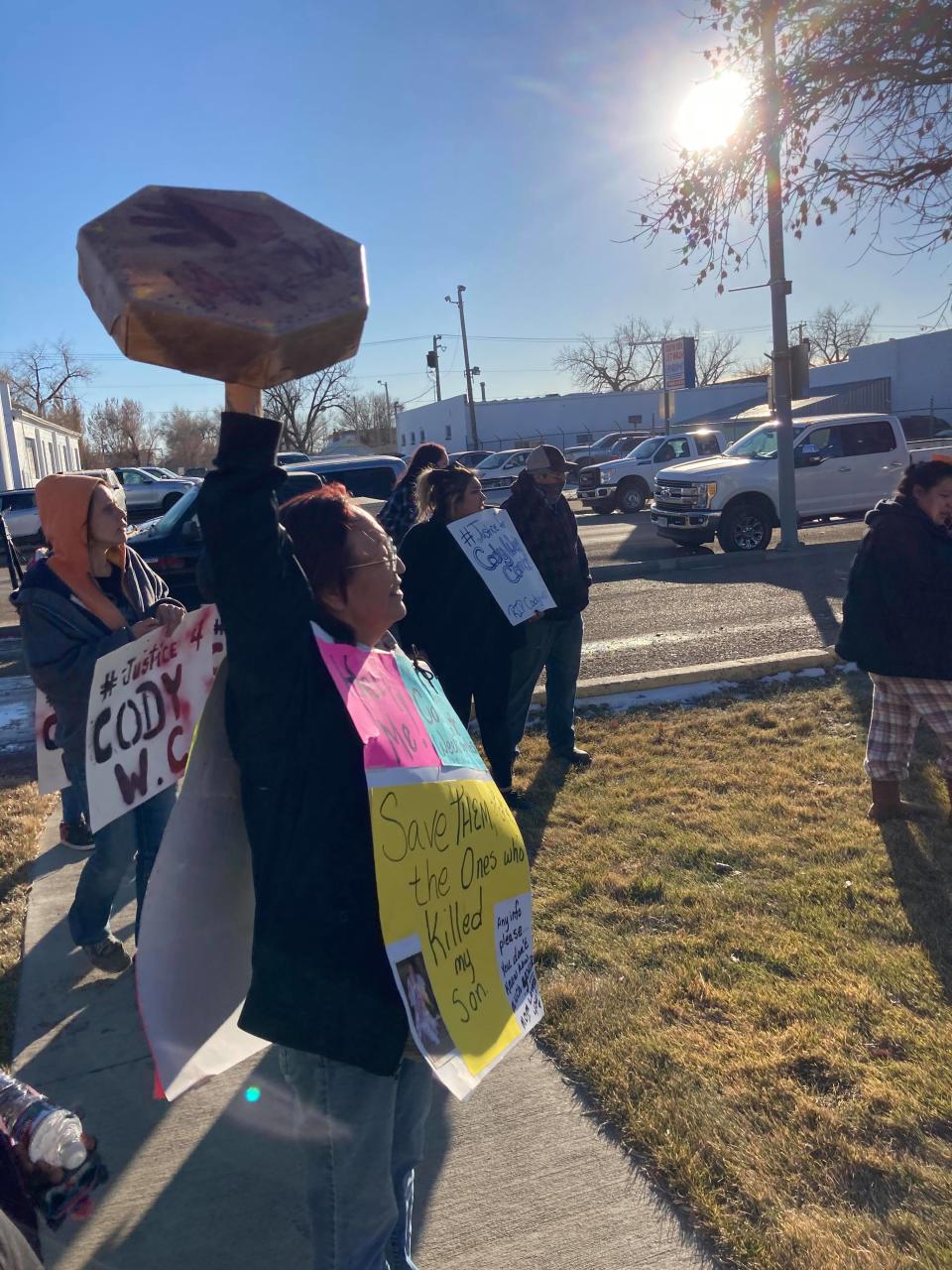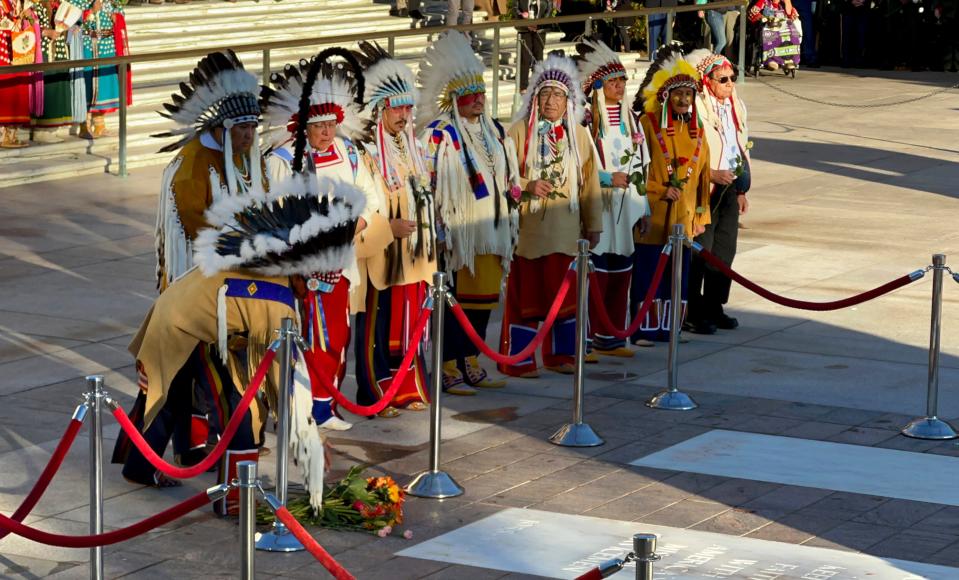The problem with the FBI

Thanks for reading First Nations, the Great Falls Tribune's newsletter dedicated to tribal news. To receive stories like this in your inbox, sign up here.
When I heard that Cody Weeks-Combs, a 28-year-old man, was fatally shot on the Fort Peck Reservation last year, I contacted the FBI for information.
I wanted to confirm that Weeks-Combs was the victim, I wanted to know whether an investigation was underway and I wanted to obtain any other public information related to the incident. These questions are standard when it appears someone has been killed, and most county law enforcement agencies are able to release information, once the victim's family has been notified.
But I didn't reach out to county law enforcement.
I reached out to the FBI when I heard Weeks-Combs had died because when a major crime is committed against a Native person in Indian Country, federal law enforcement generally has jurisdiction. Because Weeks-Combs was Native and because he died in Wolf Point, which is on the Fort Peck Reservation, the FBI and the Fort Peck Tribes investigated his case, rather than Roosevelt County law enforcement.
Prior to colonization, tribes had their own policing and criminal justice systems. But over the course of two centuries, the U.S. government has enacted a patchwork of laws that limit tribal criminal jurisdiction. Experts say these laws were not created with Native people, their values or their communities in mind.
Here's where I always run into the same problem. When I asked a contact at the FBI for more information regarding Weeks-Combs' death, I was told that the FBI and the Fort Peck Tribes were conducting an investigation, and because the investigation was ongoing, no further details could be released. When I asked if their investigation was regarding Weeks-Combs' death or someone else's death, I was told the FBI could not confirm the name of the deceased person.
This response is not unusual.
My colleagues and I have contacted the FBI with similar questions following the deaths and disappearances of Native people on reservations. While circumstances in each case differ, responses from the FBI almost always include the phrases "ongoing investigation" and "no further details."
It's frustrating. As reporters, we need details and confirmation to write well-informed stories. We don't need information that might compromise an investigation, but basic details – like the victim's name and circumstances of the crime – are critical. Without good information, it's also hard to hold agencies – and perpetrators – to account. And for grieving families and communities, the lack of information seems particularly cruel.
A few months ago when Gabby Petito went missing, the overwhelming media coverage, public outrage and extensive law enforcement response provided a stark comparison to the lack of attention generally afforded to thousands of missing Indigenous women. Most national outlets ran multiple stories on Petito, online sleuths tried to solve her case and law enforcement agencies – including the Suffolk County Police, North Port Police and FBI – collaborated in her case.
Missing White Woman Syndrome refers to the idea that the amount of media coverage a missing person receives is directly tied to the demographics and background of that person. Specifically, the term explains that missing white women and girls – and especially those who satisfy traditional beauty standards and who often come from wealthy backgrounds – are overrepresented in media coverage.

While investigating Petito's disappearance, the FBI provided information to the public on multiple occasions. My colleagues and I had not seen the federal agency do anything like that for the dozens of missing Indigenous girls in Montana.
When I asked the FBI about the discrepancy, I was directed to a two-part policy.
Part one states the Department of Justice "shall not respond to questions about the existence of an ongoing investigation or comment on its nature or progress."
This explains why the FBI did not provide further information in Weeks-Combs' death, but it does not explain the agency's willingness to provide public comment on Petito's case.
In part two, the policy outlines exceptions: "In matters that have already received substantial publicity, or about which the community needs to be reassured that the appropriate law enforcement agency is investigating the incident, or where release of information is necessary to protect the public interest, safety, or welfare, comments about or confirmation of an ongoing investigation may need to be made."
This explains the FBI's response to Petito. If a case, like Petito's, receives "substantial publicity," the FBI can provide information.
But this policy is fractured, as its exceptions seem to favor certain victims. The FBI will provide information on cases that have received "substantial publicity," but Missing White Woman Syndrome explains that such publicity is more likely to be afforded to young, attractive, wealthy, white women.

The disproportionately high number of missing and murdered Indigenous people is an epidemic plagued with racial bias. The problem with the FBI is that it bakes these biases into its policies.
National news outlets are less likely to cover stories of missing people of color, and the public is less likely to see people of color as victims. With less publicity, comes less information from the FBI.
When reporters don't tell a complete story of a major crime committed against a Native person on a reservation, it sends a message to Indigenous communities and families that the deaths of their loved ones don't matter.
As Weeks-Combs' mother, Frances, told me last December, "When you're Native, it's like you're not important to anyone."
This week in the news ...

Advocates say new congressional map undermines the Native vote
What the $1.2 trillion infrastructure bill means for tribes
Crow tribal members honor Tomb of the Unknown Soldier
Wisconsin installs Indigenous language road signs
Alluvion being investigated for billing practices
Nora Mabie
Indigenous Communities Reporter, nmabie@greatfallstribune.com
If you'd like to see this sort of thing in your inbox every Friday, subscribe to this newsletter! You can also support my work by sharing this newsletter with friends or by subscribing to the Great Falls Tribune.
This article originally appeared on Great Falls Tribune: The problem with the FBI

